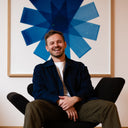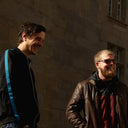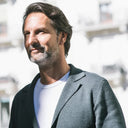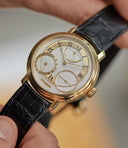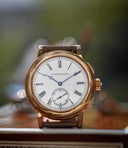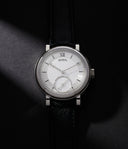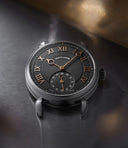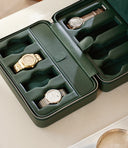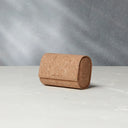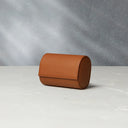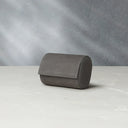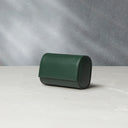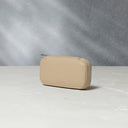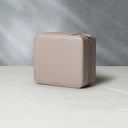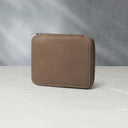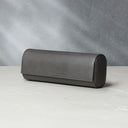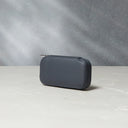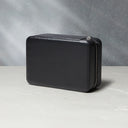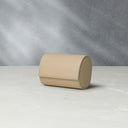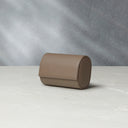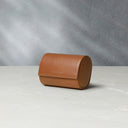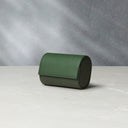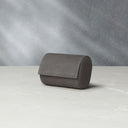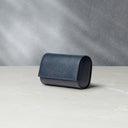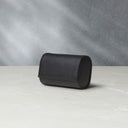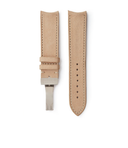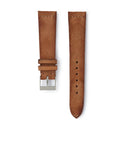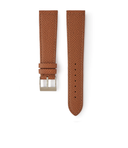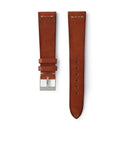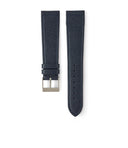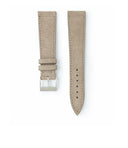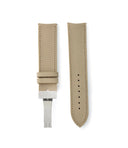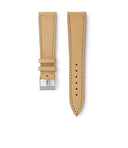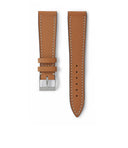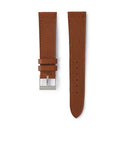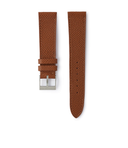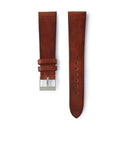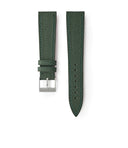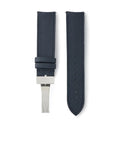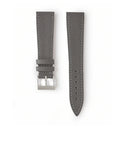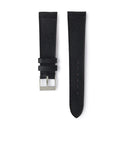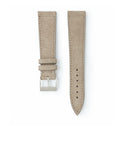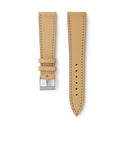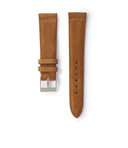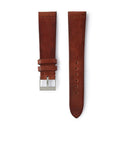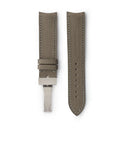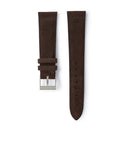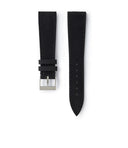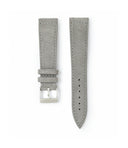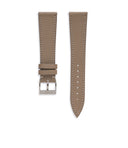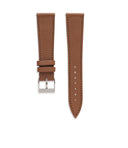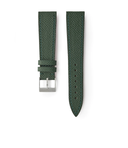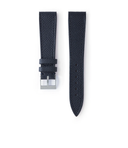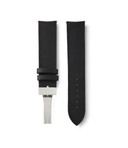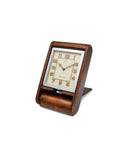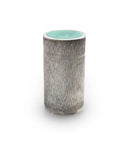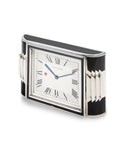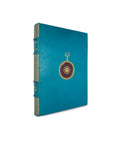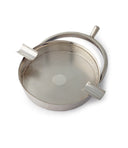Obsessions: Photography with John Sypal
Camera collecting can elicit just as much, if not more, obsession and fascination than watches do. These highly-technical objects, that some of us carry around every day, can become extensions of our bodies and projections of our personalities. To get a better understanding of this, we travelled to Japan, the land of photography greats Canon and Nikon, to speak with John Sypal. The American-born, Tokyo-based photographer is best known on Instagram as Tokyo Camera Style (@tokyocamerastyle), where he documents the various cameras he spots people carrying around his adopted city.
Besides running an Instagram account, Sypal has also published two photography books. Both themed on street photography, capturing those he encounters in everyday life, as well as his friends and family. We met with Sypal in a well-lit photo gallery down a side-ally in central Tokyo to find out, exactly, what he sees when he looks through the lens.
When did you come to Japan, and what made you do so?
I came to Japan for the first time in 1998 as a part of the three-month study program. It was around the autumn so the weather was beautiful, and I felt like everything was new and different. It was actually my first time staying outside of the States.
Quite the first destination...
Then, after that short stay, I came back here in 2001 for a year, and that was interesting too, because it was the week after the 9/11 terrorist attacks. I left America when the country really changed. My program started on September 17th at the same university that I studied at previously, so I was familiar with things there, and that made me feel a little freer.

Sypal outside of the Totem Pole Photo Gallery in Tokyo.
What did you think about Japanese culture or people when you first arrived?
Japanese people seemed to be more focused on hobbies, and they don't give up halfway through. I really admire that people take things very seriously.
Did your photography hobby help you integrate?
There was a camera club at the university, and I knew one of the members who had visited my home state, Nebraska. So, she kind of helped me get into it. I learned Japanese culture through communication with them. Joining the group allowed me to study the Japanese language, but most meaningfully for me was definitely taking pictures. During those days, I established this pattern.
What pattern?
Shooting and developing films, and taking pictures in the darkroom every single day. It was 20 years ago. We used to only have two computers with the internet in the dormitory, so the camera was a good reason for me to get out and about. I could concentrate on the pictures and really liked the environment. This Nikon F2 was the one I carried with me all the time. It’s very important to me.

Sypal's beloved Nikon F2.
It looks pretty vintage. How important is that to you?
This camera is from the '70s. It’s not rare and expensive at all, but for me, it’s a “guiding camera”. I bought it in the States right before my stay in Japan. Then, I found the battery cap was missing, so I thought I would just go to Tokyo and get a new part there.
Not the worst of places to look...
After a week of my arrival in the country, I bought a Japanese camera magazine and I found a place in Shinjuku, it was actually Nikon’s official shop called “Nikon Plaza Shinjuku”. Then I happened to visit a gallery which was attached to the store and got to know Mitsugu Onishi, a well-established photographer and a member of the managing committee of the gallery. He later became my photography teacher, and the gallery eventually became the venue where I had my first solo exhibition in Japan.
What a coincidence...
Indeed, having a missing piece helped me end up here. I saw the gallery and I became aware of this world.
"The camera adds to the experience, the camera adds to the moment..."
So, you're a Nikon person. Were you already into cameras by the time you came to Japan?
I took a photography class in high school and quite liked it. But we didn't have much time to do anything in 45 minutes. You need at least a few hours to get to know how it really works, right? So, I was more into drawing because it was quicker. Afterwards, when I got to college, I had more time to work on photographs. At that time, I had a single-lens reflex Minolta camera, but didn't really mess with it. I thought using a camera took too long, and let’s say, a bit troublesome to me to be honest [Laughs].
[Laughs] Takes some getting used to...
But an encounter with a great teacher at the college changed my perspective completely.


When he first arrived in Tokyo, John took to discovering the city through his camera. Pictured here is his Instax Wide 210 camera - combining a wide-angle lens and a silent leaf-shutter, it's a convenient and fun camera for shooting on the street.
How did they change your perspective?
His name is Dave, he's a great guy and would carry his camera all the time. He wouldn’t tell a story that taught techniques. He really expressed through slideshows, lecturing and talking about different photographers, mostly Americans. That made me realise what I was fascinated with was the act of incorporating the camera into peoples' lives.
Rather than living it through a camera?
The photographers that I liked were very much about living a life with the camera, and it wasn’t for the camera to get in the way. The camera adds to the experience, the camera adds to the moment. There are a few different ways of looking at this. Some people think of it as taking a picture out of the living moment. But I think taking a picture makes a moment. That's my perspective.

A photo taken by Sypal of friends' children.
Pictures are best when you let things be?
Exactly. Anyways, since I came up with this idea, I’ve always had my camera with me. I like taking pictures of people, especially friends. [Takes out a stack of black and white pictures] Those are my friend’s kids actually laying on a skateboard. This picture to me is just amazing because it's very much about the kids. Simple as that.
Do you still use film cameras and even make prints?
Yes of course. With lockdown earlier this year, I printed a lot of pictures, mostly friends’ images. When I saw them in the pictures, I suddenly realized I didn’t know when I could hang out with them again. So, I mailed a bunch of pictures to them and they were really happy to get my gifts. I think people really like physical images.
But it obviously takes more time to deal with, and also for receivers, they may not be familiar with actual physical prints nowadays...
Yeah, but for me, prints are special. It’s all about how people are tagged in the “moments”. I think having the actual physical items like that is something they appreciate, even in the time of the internet. It’s not only about pictures, but also things like CDs and DVDs.

Some of the more artistic shots taken by Sypal.
People somehow miss the physical contact that has been dramatically lost in the last decade...
With the internet, there is no limit. On-screen, everyone can change the colour, the lighting, and even the shapes of the objects afterwards. But pictures limit. That's one aspect, and the reason why I do black and white. I like doing so as only I can control the world.
It must have also reminded you of how you used to spend time in Japan...
Yes, my life used to be just like that, a series of prints in the darkroom. I used to shoot, or probably even now, maybe 200 rolls a year. Therefore, the stock that I worked on during the “stay home period”, was like a ton of photos of different friends.
A way of spending time with them?
In a way, yes. These are casual snapshots, and I felt as if I seeing my friends, re-experiencing those old days. So, what I mean is, I like the photographic approach where you incorporate the act of seeing. As you're noticing things, you're also acting. It’s really fun.

Sypal taking a quick snap.
Tell me about your book. How did the project start?
My first book, Tokyo Camera Style was out in 2015. Originally, it was on Tumblr, and then I switched that to Instagram. Then I had an exhibition at a gallery that consisted of about 20 pictures from the collection, and the gallery owner asked me if I would make a book with him.
It looks like a diary of the people you met...
That’s correct, people with film cameras. I believe cameras show their personalities. Take me, for example. I used the same camera for a long time. I know they could be very expensive, but if I calculate how many days I’ve been having fun with them since the day I bought them, and how much it has cost per day, it actually comes to only about a few hundred yen a day. It’s rather affordable, don’t you think?
"Cameras are all about different personal feelings and personal choices..."
Good value for money, if you look at it that way...
I know it’s a strange way to think about the cost. Maybe I’m not good at math. I sometimes wish I had bought a nice watch, but this is what I am.

One of the cameras John spotted in Shinuku, a Rolleicord, seen here with a handheld light meter and a rather fitting Kodak shirt.
How many cameras do you use?
I regularly use about six or so. These two, the Nikon F2 and this Leica M6, are very important to me. This Nikon is, as you already know, important as I've had it for so long, and this is the camera that showed me the doorway to Japanese photography. Thankfully, if it didn't have this missing piece, I wouldn't have had gone to the Nikon store in Shinjuku, and I wouldn't have known about the gallery. I wouldn't have met my teacher, I wouldn't have had exhibitions, I wouldn't have had the blog, and I wouldn't have had the book.
This is from my photography teacher. He emailed me a couple of years ago and asked me if I would buy this from him, as he was going to get a new digital camera. And the price he suggested was very, very, very cheap.
Not often the case with Leica...
It was so cheap I actually paid more because I felt bad.
I guess the price is not the only reason to buy the camera.
Yeah, I also bought it from him because I really like him. He said he used this to document his life. And now I have rebuilt it and overhauled the inside perfectly. It makes me feel like our lives have somehow merged together. It’s all about a personal connection between us. I know if you go to Shinjuku, you can find a few of these easily, although they’re more expensive now, but it means a lot more to me than the price. I really like that I have my teacher’s camera, who taught me so much about the lens, and also showed me the approach that I enjoy.

Sypal's most used cameras, including a Fuji GF670, his trusty Nikon F2 and the Leica M6 that he bought from his old teacher.
And it's physically enduring as well, so it’s good in that way too.
That’s the nice thing about these handmade mechanical cameras. This is from the 70s, but will last forever. That's what I like about objects like bicycles and watches. They're built to last, in a way few things are nowadays.
Do you see any similarities among those items?
Well, I don’t collect them so let me think. [Pauses for a moment] The one thing I can definitely say is that a camera brings an energy. Many people visit this gallery after checking my Instagram, and after we hang out for an hour, by the time they leave, they become so energetic. I do think it's because we connect on similar things, and that naturally translates into energy.


Ever present in the streets of Tokyo, the Leica M6 is a camera which John not only frequently spots, but also shoots on himself.
A similar passion for similar cameras?
That’s right. What's interesting about my book, Tokyo Camera Style is that’s all about individuals. These are all personal choices. The person expresses their personality through the camera. It's a sort of individuality.
How do you guess certain character traits?
There are certain things that I look at, such as where paint comes off, as well as stickers, and I think these are cool details because the items create a portrait of the person. That's the main thing I appreciate: I get to know people I would never have met unless they had a camera. Cameras are all about different personal feelings and personal choices.
You published the second book, Zuisha in 2017. Again, the book consists of only black and white images.
I like the purity in the way it cuts down other objects. Those are random people who I met in the street, as well as my girlfriend. Some were taken in a park, and the others were at a sushi restaurant in Ginza.

An image from on of Sypal's books.
The title, Zuisha: 随写 doesn’t sound familiar. Is it a word that you coined yourself?
Yes, I combined the word, Zui, that refers to essays, and Sha from Shasin, pictures in Japanese. For me, it’s mainly taking pictures of reactions to something that has happened. It's about stepping back later and using those reactions as crutches, where you kind of find a new imagined story, a new perspective that has been in my head for a long time but not been noticed.
The images are more sensual here.
I know, that wasn’t my plan, although I do admire Nobuyoshi Araki and the concept of Shishashin, private photography. When I take pictures, I don't think about the object too much. I kind of leave it there. I got involved in the photography club at university and found that photography makes my life interesting. Like, you take pictures and then the pictures teach you something else about life. It's not just trying to get a really good shot. It's more about how these photos link together to reflect my life, and what I'm interested in.

Sypal sat outside of the Totem Pole Gallery.
Have you ever thought about making movies by the way?
Me personally, I am not interested. I do like Instagram stories and I've learned a lot from that. But what I like about photography books is that I can make this up and flip it open anywhere, and I can also go through the pages in any order. But that’s hard to do in a movie, as you need to start at the beginning.
I asked this question, because in Japan, there are many photographers who have been shifting into movies these days.
I know, it’s universal and good for people who make the change. But all I care about is what I want to do. I would never tell people how to shoot, or what they should capture. The only thing I would say is that you should really care about what's important, and what's interesting to you. And that is the biggest reason why I use the same film cameras for such a long time.
Thank you to John (@tokyocamerastyle) for taking the time to speak with us and share his passion. Photography: Koomi Kim.







